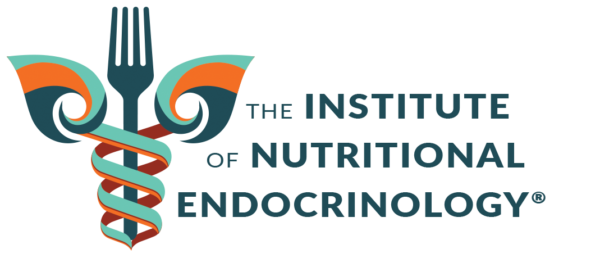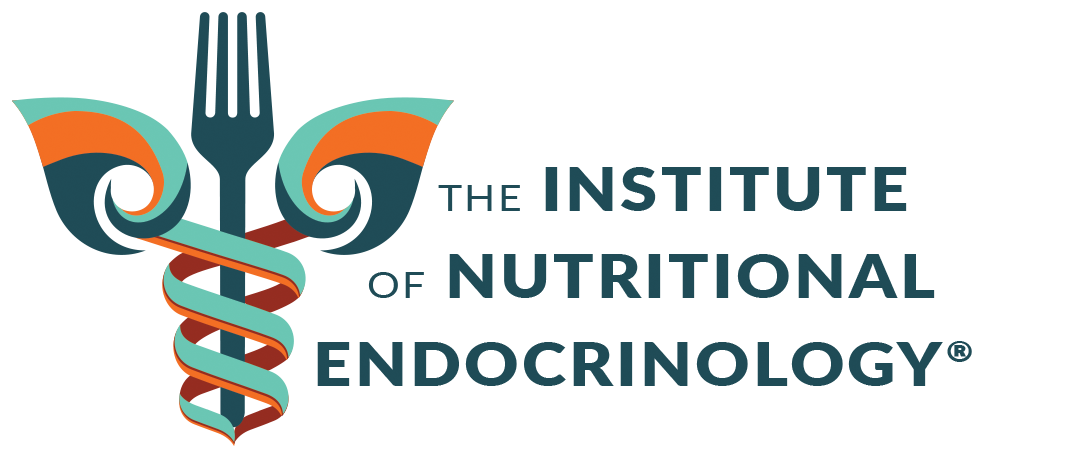Clinical Pearls – 2018
Do multivitamins improve heart health? – November 16th, 2018
Nutritional Endocrinology Practitioner Training (NEPT)
Clinical Pearl
November 16th, 2018
Do multivitamins improve heart health?
In a Pub Med review paper, a total of 18 studies that evaluated the association of multivitamin/mineral supplementation on cardiovascular outcomes, such as stroke and heart attack, were reviewed. The studies spanned an unusually large time frame – from 1970 to 2016.
Although the scope of this review was huge — with over 2 million participants across all 18 studies — there were some important details missing. For example, only 5 of the 18 reviewed studies actually specified the dose and type of supplement studied. This means that the majority of the studies had no actual data on how much, or even what type, of vitamin or mineral was taken.
I feel that this review paper is too broad for a conclusion. It’s not surprising that the review authors came to the conclusion that multivitamins do not improve cardiovascular health. I think it is too short-sighted in not further researching how different nutrients could affect heart health.
If you review the Micro-nutrients Module, you understand more about how nutrients work. This might be the better conclusion: that a general multivitamin may not be the best for those with cardiovascular issues.
To me, this reinforces even more the idea that you need to understand the actual micro-nutrient deficiencies in those with heart health issues – or any health problems. Then you can target supplementation, along with food and herbs, that will more likely improve the health of your clients.
(Circulation, Cardiovascular Quality and Outcomes, July 2018)
Using Genetic Reports for Personalizing Nutrition and Lifestyle Plans – October 27th, 2018
Nutritional Endocrinology Practitioner Training (NEPT)
Clinical Pearl
October 27th, 2018
Using Genetic Reports for Personalizing Nutrition and Lifestyle Plans
I found a book on my Kindle app this week that I’d forgotten I’d downloaded.
It’s called “Genetic Testing: Defining Your Path to a Personalized Health Plan: An Integrative Approach to Optimizing Health,” by Christy L. Sutton, DC.
It has a very detailed explanation of major SNPs and a report that can be ordered based on 23andMe raw data.
I ordered the report and will be discussing it, along with many others, at S.H.I.N.E.
It’s DEFINITELY nicely laid out and I recommend getting a copy.
The hard cover is pricey at around $35, but the Kindle version is lower. I bought both.
You can check out the report here.
The importance of understanding biochemical pathways – October 19th, 2018
Nutritional Endocrinology Practitioner Training (NEPT)
Clinical Pearl
October 19th, 2018
The importance of understanding biochemical pathways
Last week’s calls got me thinking a lot about what sets us apart at INE, even amongst functional medicine practitioners.
I hear of so many people seeing functional medicine doctors and walking out with long lists of supplements to take and very little understanding of why. And also, very little discussion of the diet, lifestyle, and mindset activities and blocks at the heart of their imbalance.
If you’re one of our ERC coaches and missed last weekend’s ERC Lab Retreat call, I suggest you watch replays for ideas on how I integrate lab findings with meaningful baby steps.
When you understand how things work, you get to dig into confounding lab findings, and explore with your clients the role of stress, past trauma, and so much more.
Listen to the replay of our INE Office Hours last week and Thursday’s Open Office Hours, too.
Book Review: Magnificent Mind at Any Age by Dr. Daniel Amen – October 12th, 2018
Nutritional Endocrinology Practitioner Training (NEPT)
Clinical Pearl
October 12th, 2018
The latest book I’ve been listening to is Magnificent Mind at Any Age by Dr. Daniel Amen. It’s packed with powerful gems. His research stems from the thousands of brain scans he’s performed. He gives a brain assessment for those who don’t have access to brain scans. Dr. Amen maps out symptoms, conditions, and behaviors to particular areas of brain imbalance and offers solutions based on cognitive skills, mindfulness practices, nutrients and herbs before drug therapies.
I highly recommend this book.
Book Review: My Stroke of Insight by Jill Bolte Taylor – October 5th, 2018
Nutritional Endocrinology Practitioner Training (NEPT)
Clinical Pearl
October 5th, 2018
Dr. Alan Hopkins – September 28th, 2018
Nutritional Endocrinology Practitioner Training (NEPT)
Clinical Pearl
September 28th, 2018
Plant Based Keto? – September 21st, 2018
Nutritional Endocrinology Practitioner Training (NEPT)
Clinical Pearl
September 21st, 2018
Plant Based Keto?
Isn’t that an oxymoron?
Actually it’s not, and I’ve been doing it for almost 4 months.
I’ve been eating huge quantities of veggies, plus avocado, coconut, olives, nuts and seeds and staying in ketosis since the beginning of June.
When your clients say they are “doing keto” ask them to share their test results. How are they testing to determine they are in ketosis. Are they?
I talked a lot about it on a recent webinar called “Beyond Keto, Plant-Based and Fear-Based Food Plans.” You can catch the replay here.
It should be available for a while longer.
Thyroid Testing Tip – September 14th, 2018
Nutritional Endocrinology Practitioner Training (NEPT)
Clinical Pearl
September 14th, 2018
Thyroid Testing Tip
If a client gives you prior labs to look at (a good idea), be sure to notice the TSH levels. If they tend to fluctuate widely — even if in “normal” range or ideal range, suspect autoimmunity.
Test TPO (thyroid peroxidase antibodies) and Antithyroglobulin antibodies. I like to see TPO under 10 and antithyroglobulin under 1. If elevated, you’ll need to follow the suggestions in the Thyroid Module for handling autoimmune thyroid issues. There’s a great PDF that’s in part 5 of our Thyroid Revive and Thrive (TRT) program in the client site.
We recently had a caller from the TRT program share her labs from another nutrition-oriented practitioner, and I was shocked. He told her that antibodies in the 400s were nothing to be concerned about. She started our course, and asked him to run a complete battery of the tests we recommend. He thought it was pointless, but did it anyway. Her TPO had risen to over 900, and TSH was 33. T3 and T4 were low, even by lab standards, and his comment was, “I guess there really is a problem, and we may need to put you on medication.” No mention about healing leaky gut, identifying stressors like heavy metals, viruses, or trauma. I was shocked, as he’s a prominent doc in the nutrition world. In a 10-minute conversation, we came up with a plan, and figured out that her fatigue and thyroid symptoms started after a bout with mono. Before that, she was an energetic athlete.
I share this to empower you to use what you are learning, and have confidence in your ability to help people who’ve not been helped by other practitioners.
Book Review: Why Can’t I Get Better, by Richard Horowitz – September 7th, 2018
Nutritional Endocrinology Practitioner Training (NEPT)
Clinical Pearl
September 7th, 2018
I’ve been listening to an audiobook while I run called, Why Can’t I Get Better, by Richard Horowitz.
This book is for those people who have tried everything, including maybe even Lyme testing or treatment, to consider the combination of Lyme, coinfections, and heavy metal overload.
According to Horowitz, much of Lyme and the coinfections, especially babesiosis, are missed due to poor testing. A combination of IGeneX labs and Western Blot, in his experience, is the most sensitive.
The first part of the book is heavily focused on his antibiotic protocols. But towards the middle and end, he starts to talk about functional medicine and nutrition.
The section on heavy metals and toxins was a real eye-opener for me.
He split tested hair and challenged urine (challenged with DMSA at a specific amount per body weight) and found the urine much more sensitive.
It really brought home for me the need to do Lyme testing, tox screens, and heavy metal urine testing in all of our mystery cases, as well.
I will caution you to be careful when using the challenge on folks with severe neurological impairment, as mobilizing toxins from storage during the testing can worsen symptoms. In that case, you may want to start with hair as an initial screen.
I highly recommend the book. The audio comes with a PDF companion with questionnaires and protocols.
I believe that addressing diet and foundational pillars would enhance his antibiotic protocols and cut back on the need for long-term use. Who knows… he may conclude that at the end of book too. I still have a few chapters to go.
Book Review: Fat Chance by Robert Lustig- August 10th, 2018
Nutritional Endocrinology Practitioner Training (NEPT)
Clinical Pearl
August 10th, 2018
I’ve been reading a book called Fat Chance by Robert Lustig.
I’m enjoying his explanations of how fructose and alcohol are handled in the body, step by step.
It’s a good reference book for helping you explain to your overweight and insulin resistant people.
Obesity as a metabolic disease is explored, as well as food policy and big business brainwashing. Check it out.

